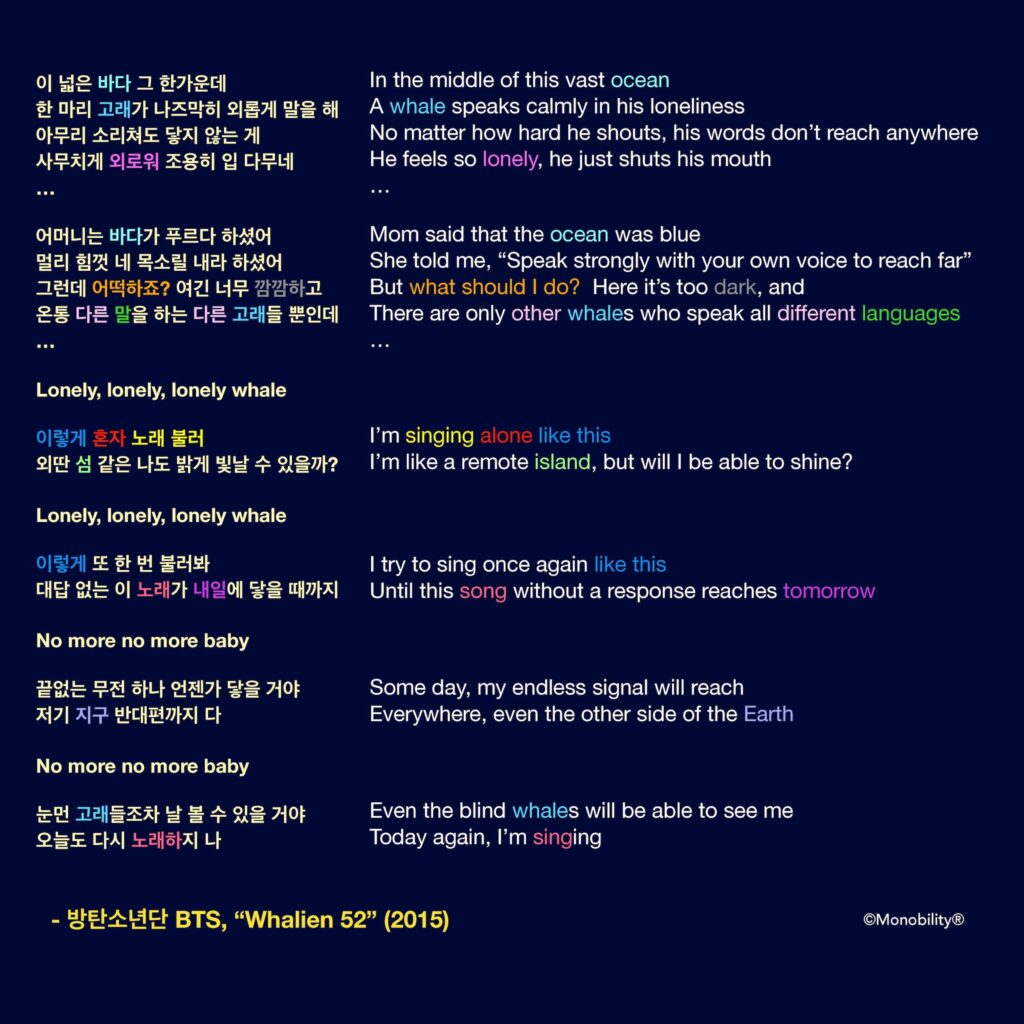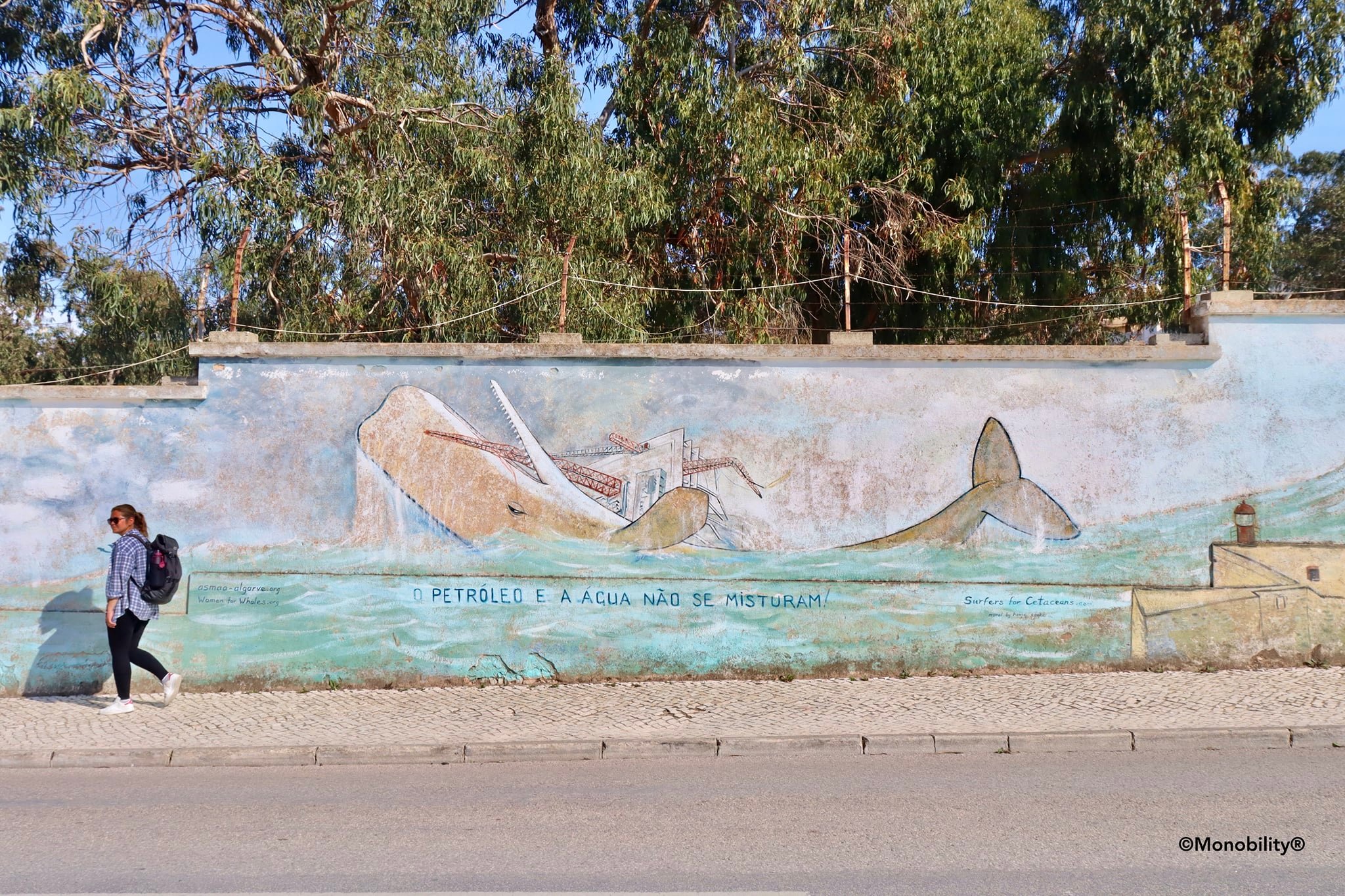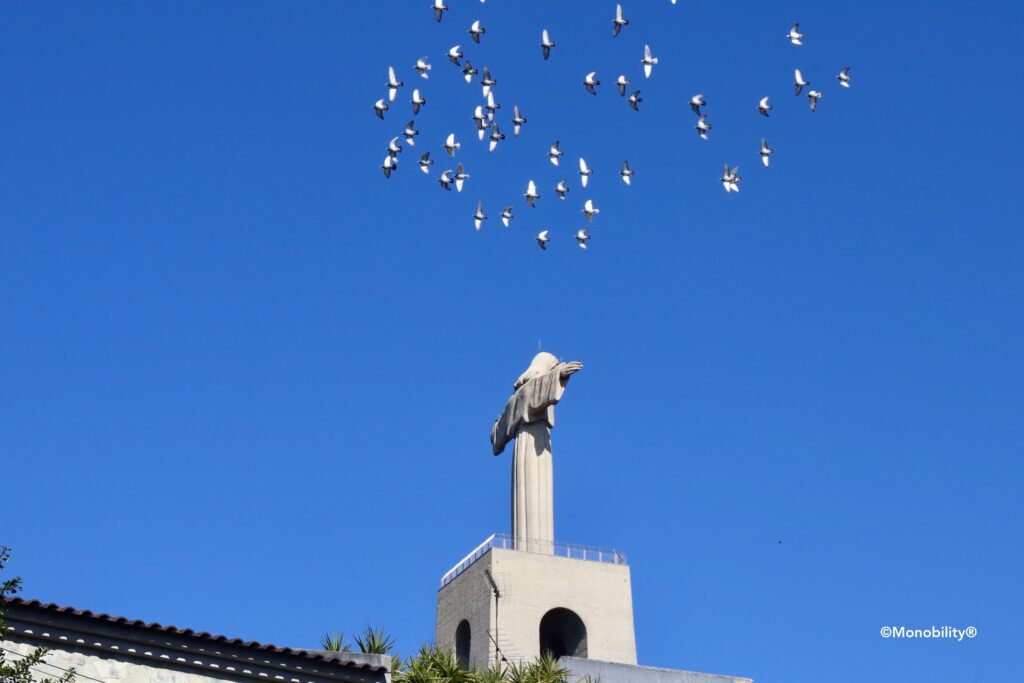In 2015, two years after their debut, BTS (방탄소년단: 방탄 Bulletproof; 소년 Boys; 단 Band) sang about a whale (고래) in their single release “Whalien 52.” They chose a 52 Hertz whale, which is said to be the world’s loneliest whale, as a metaphor for the adolescents who feel alienated by the society and often don’t have a voice against the established generations. As you would see in the selected lyrics below, it is not just a coincidence or a good luck that these talented singers achieved such an international success and keep inspiring the global audience regardless of their age, gender, or nationalities, as of today in 2022. They just kept singing in their own voices. Until their songs reached the other side of the planet, until unreasonable, irrational, so-called “adults” – “blinded whales” – would be able to listen. Great job, boys. You are bulletproof. Keep calm and carry on.
The Korean word 고래 has a few interesting linguistic ramifications:
- 돌고래 (dolphin): It would be easy to remember this word if you think of 돌 (stone) and 고래 (whale) together. But dolphins have nothing to do with stones. Korean linguists suggest that the etymological origin of “돌” in 돌고래 is from 도야지 (pig). Perhaps the ancient Koreans named the dolphin after its face looking like a pig, with the long nose or snout.
- 술고래 (drunkard, heavy drinker): 술 alcoholic drinks + 고래 whale. This one is rather obvious – “A whale who drinks like a fish.” You get the picture? ^^
- 고래고래 (adverb describing a person who continuously yells and shouts in a loud voice, usually in an angry, heated, often uncontrollable argument): In most sentences, this adverb is followed by “소리 지르다” or “고함을 치다” meaning “to yell, to shout.” Here, the two-syllable word 고래 is repeated once to form a four-syllable adverb. This type of adverbs are mimetic words, which is a trademark signature of the Korean language, since Koreans use them abundantly and profusely in daily conversations. Please refer to my previous post on the mimetic adverbs for more details:
When it comes to both words 고래 and 고래고래, most Koreans would think of one famous song – “고래사냥 (Whale Hunting),” where 송창식 suddenly yells in fortissimo waking himself up from his own daydream – catching a whale in the East Sea of Korea. As a pioneering composer who first accomplished amazing musical amalgamation of Korean traditional tones in the Western musical palette, the utterly creative singer presents a surrealistic portrayal of ordinary Korean individuals’ life, frustrated but never giving up freedom during the dictatorship in South Korea back in 1975. Here, once again, a whale 고래 is a symbol of individual life’s goal, overcoming harsh reality, oppression or challenges from the society.

Subscribe to our Youtube for much more:



